Sex, drugs, violence and ingenuity: the rock ’n’ roll life of Australia’s road crew
THERE is no show without the unsung heroes of rock ‘n’ roll. A new book, Roadies, shines the spotlight on the men and women who make magic happen on the stage.
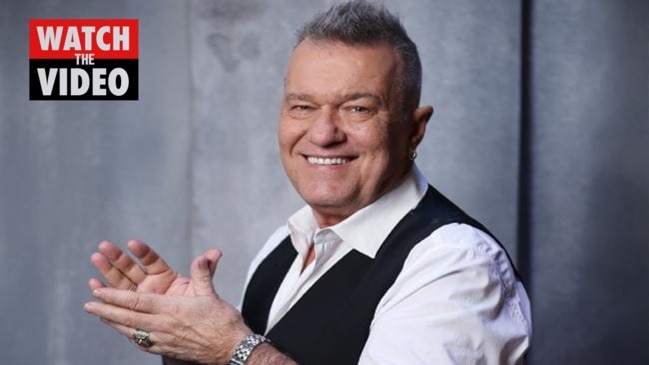
Books & Magazines
Don't miss out on the headlines from Books & Magazines. Followed categories will be added to My News.
HOWARD Freeman is the keeper of the rock ‘n’ roll secrets.
The 70-year-old roadie, a pioneer of the Australian touring industry, knows more stories about the Rolling Stones, Sherbet, Ted Mulry Gang, Dragon, Courtney Love and all the other rock stars he has worked with over the past five decades, than they have forgotten thanks to alcohol and drug-fuelled fogs.
Like the time he was on the road with Jimmy Barnes, who decided to hold a golf tournament inside his resort hotel room, aiming balls at glasses perched precariously above the rocker’s bed.
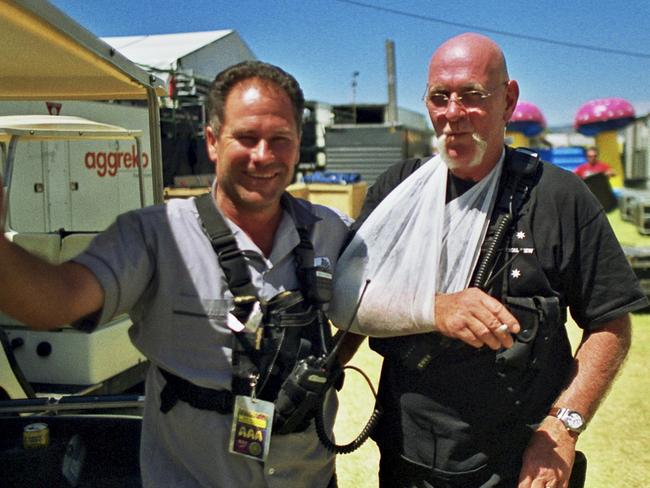
Determined to up the ante of the contest, Barnes and his golf buddies declared it would be a wet-weather tournament and doused each player with a bucket of water as they lined up their shot.
As Barnes surveyed the trashed hotel room, he rang his tour manager Freeman to ask him to sort out the damage.
The crew hero found a golf buggy, got it started and drove it straight through the glass door of Barnes’ room, with shards and splinters flying everywhere.
“I hear there’s a golf tournament on,” he said with a mischievous grin when the buggy came to a halt.
Freeman is revealing a few of his secrets now for Roadies, a backstage pass to the hidden world of the road crew, written by Stuart Coupe to shine a spotlight on the men and women who make the show happen.
His motivation, and that of the 40 or so of his peers who spoke to Coupe for this oral history
about the backbreaking labour, dazzling engineering ingenuity and often death-defying consumption of alcohol and drugs on the road, isn’t about getting long overdue credit for their contribution to rock ‘n’ roll.
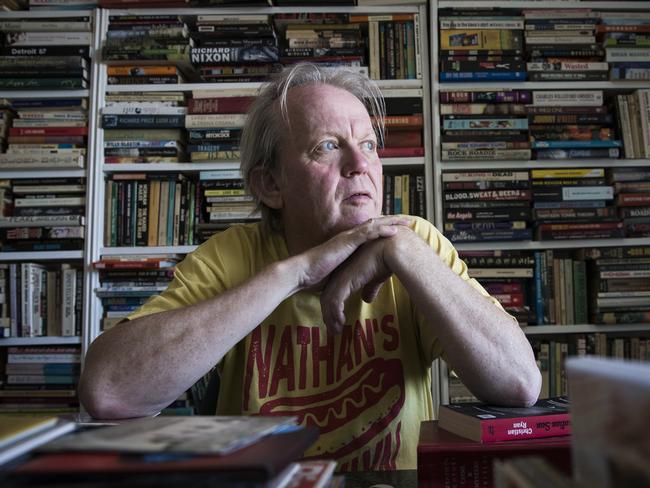
Now, it’s about saving lives, as the ravages of decades of hard physical labour, and often substance abuse, take their toll on their ranks.
“The better the road crew is, the more invisible they are. Unless smoke starts blowing from an amp or a kick drum falls over or people start to invade a stage, you don’t actually see them,” Coupe says.
“Anecdotally, road crew suffer from somewhere between four to five times the national suicide rate, it’s a hideous situation. And it is a horrible statistic that is not mirrored around the world,” Coupe says.
“This is Australian oral and cultural history. All these great characters. And no one had ever been interested.
“Since Howard and the other pioneers of the industry set up the Australian Road Crew Association about five years ago, the death toll has dramatically reduced. The idea is you call a road crew member each week to check in.”
Freeman, whose most recent tour was with Green Day, comes from a family who have been in the entertainment business now for more than a century. His youngest son Lee is currently the production manager for the Foo Fighters.
He has seen touring change from its wild west outlaw days through the 1960s, 70s and 80s to the professional industry it is today — finally with superannuation and other benefits most workers take for granted.
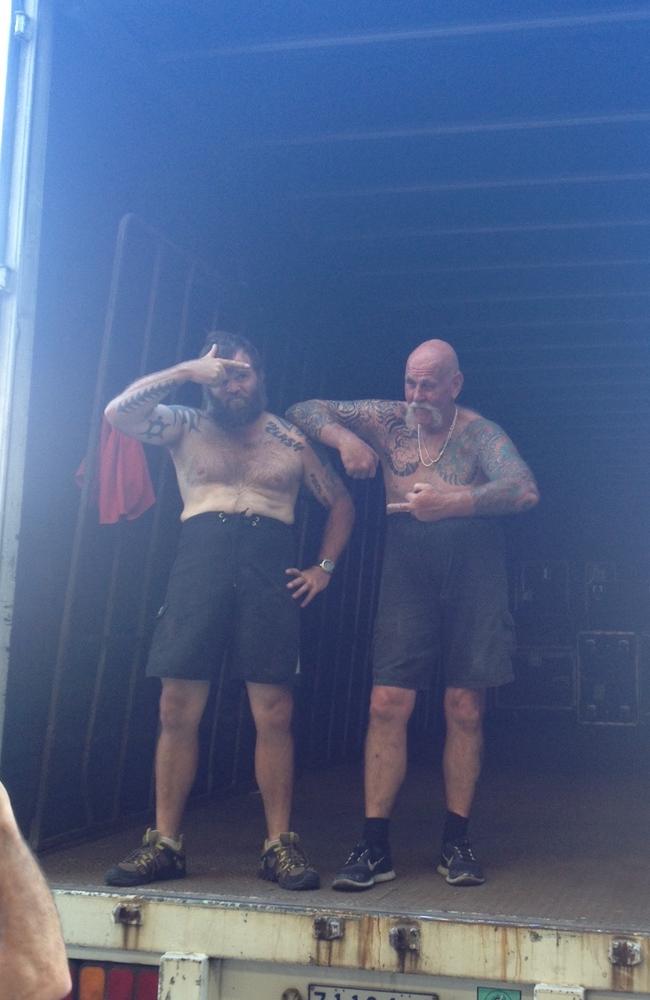
Even with his family experience, Freeman and his mates all learned their trade — whether building stages, rigging lights and sound or loading trucks — on the job as teenagers.
“I failed fourth form maths but my last production budget was $6.8 million for AC/DC,” he says.
Long before extravagant riders demanding four-course restaurant meals and gallons of alcohol pre-show, sports cars to transport divas to their gigs or lavish recreations of an artist’s loungeroom backstage, Freeman would put out pizza and beer for his bands.
“There weren’t really riders in the 60s. The contract would be the band will play for 45 minutes for this amount of money and that was it,” he says.
“I think John Mayall was the first artist I toured who asked for a limo, back in 1968 or 69. I had no idea what a limo was so we just went out and got the biggest car we could find and that sort of worked.”
Freeman and so many of his road crew mates reveal extraordinary tales of the violence they have had to endure just doing their jobs.
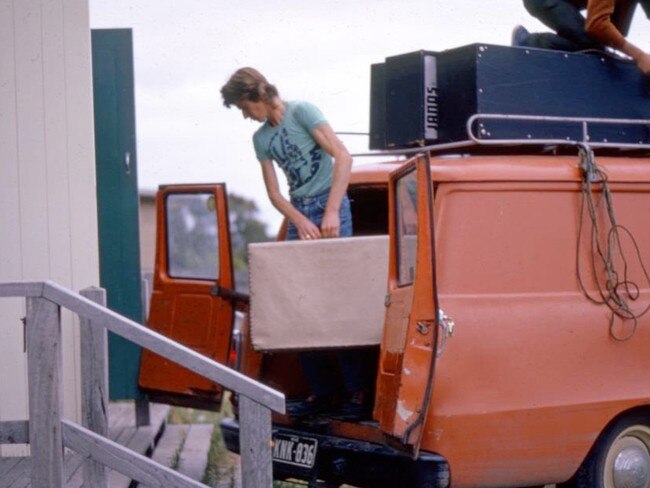
Rock fans, particularly in regional towns, would target them as they packed up the gear, fighting them even as they hauled cases and lighting rigs into the back of trucks before a long night’s drive to the next show.
Many of the crew would arm themselves, buying guns as they crossed into Queensland in the decades before laws restricted the purchase of weapons.
Roadies also details the huge volume of drugs - speed, acid, cocaine and marijuana - consumed to keep the crews awake or “entertained” as they drove thousands of kilometres through the night.
Booking agents and managers had scant regard for the size of Australia, often routing tours starting in Cairns and finishing in Perth without considering the toll on the crew who had already spent many hours loading in and loading out equipment before they had to hit the road.
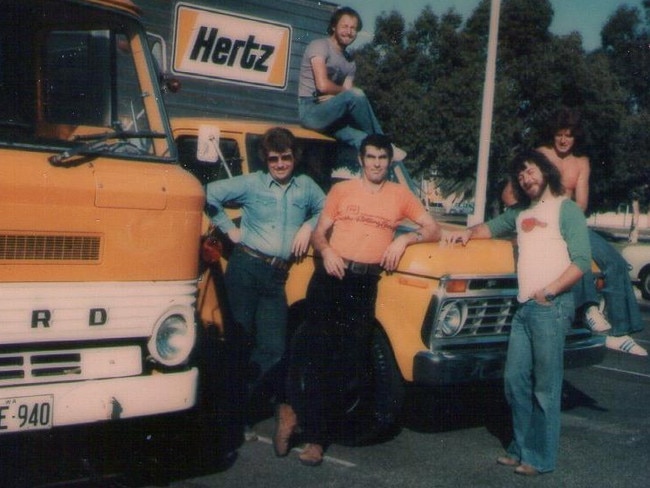
“It staggered me we lost so few roadies on the road when you consider the millions of kilometres that these guys were driving, with a bottle of Jack Daniels, four grams of trucker speed under their belt and the condition of the roads,” Coupe says.
“Sherbet lost a couple of their crew, Chisel lost two of their guys who were touring with Swanee, Max Merritt and his band were seriously injured and there was the Thirsty Merc crash a couple of years ago. There’s been a lot of accidents, trucks and cars and vans being rolled.”
Coupe also shines a light on the indomitable women who fought to be respected in this male-dominated industry, from the world’s first female roadie Tana Douglas, to Leesa Ellem (You Am I) and Sophie Kirov (Flume).
Douglas, who now runs one of the go-to freight businesses for bands out of Los Angeles, started doing front-of-house production for AC/DC when she was just 17.
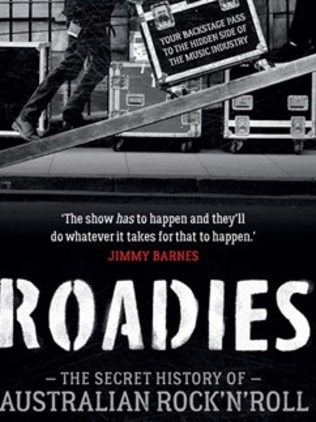
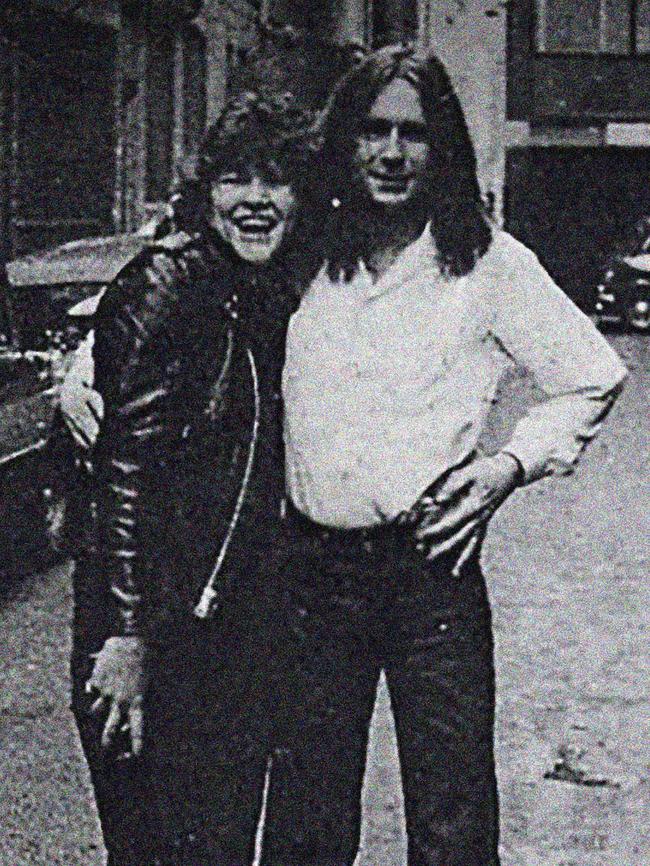
Kirov, who is currently on tour with Flight Facilities, jokes her least favourite aspect of the frenetic, on-demand for 24/7 on-the-road existence, is the lack of a daily shower.
As she runs through her impressive skill set developed over the past decade, she agrees the modern tour manager would make a perfect candidate for a job at ASIO.
“Ha! I did a test that came out for a spy job and I got really far,” Kirov says, laughing.
Road crew are problem-solvers, caregivers and confidantes. They are engineers, communications specialists and logistics experts. They have to balance budgets and artistic egos.
“I’ve always been fascinated by how much harder it would have been to do this job back then,” she says.
“I can order any obscure item we need on Amazon Prime in the US and have it at the venue in hours or they have services where someone will go to a whole foods shop to get the band’s food and call me saying ‘They don’t have raspberries but they have got these gorgeous blueberries, will that do?
“You can have everyone on a Whatsapp group so they all know when we have to meet in the lobby to go to the venue.
“And I can track all their phones so if someone is late and they are telling me they are in their hotel room, I can see they are not.”
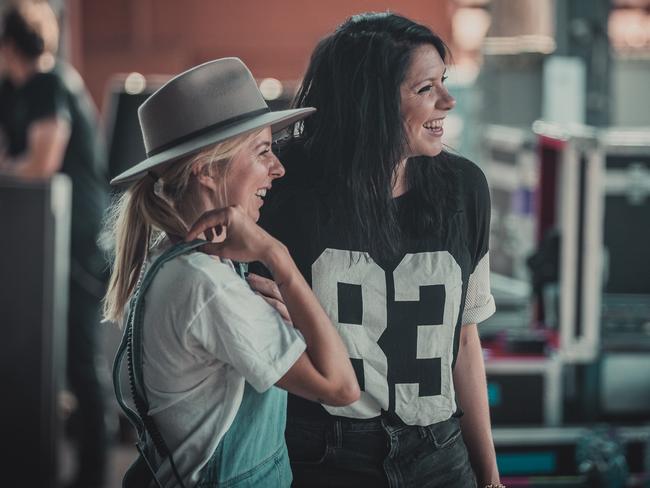
Kirov said she has worked hard learning on the job to earn the respect of the tight-knit tour industry.
And while some of her female peers have suffered harassment or been dismissed as “girlfriends of the band”, Kirov said the generation of artists she works with treat her as an equal.
“I won’t discount anyone’s experience but I do not see it exist around me. The men I work with are generally from the same generation and are incredibly respectful and mindful of me,” she says.
“I am five foot tall and as much as I would like to think I could handle any situation, it is good to know they are behind me.”
***Roadies — the Secret History of Australian Rock ‘n’ Roll, by Stuart Coupe, published by Hachette Australia. Released on September 25, RRP $32.99
A Celebration of the Australian Road Crew lunch, Factory Theatre, Wednesday and Thornbury Theatre, Melbourne on October 4 will raise funds to help members in need. Ticket details via supportact.org.au
.
Originally published as Sex, drugs, violence and ingenuity: the rock ’n’ roll life of Australia’s road crew
